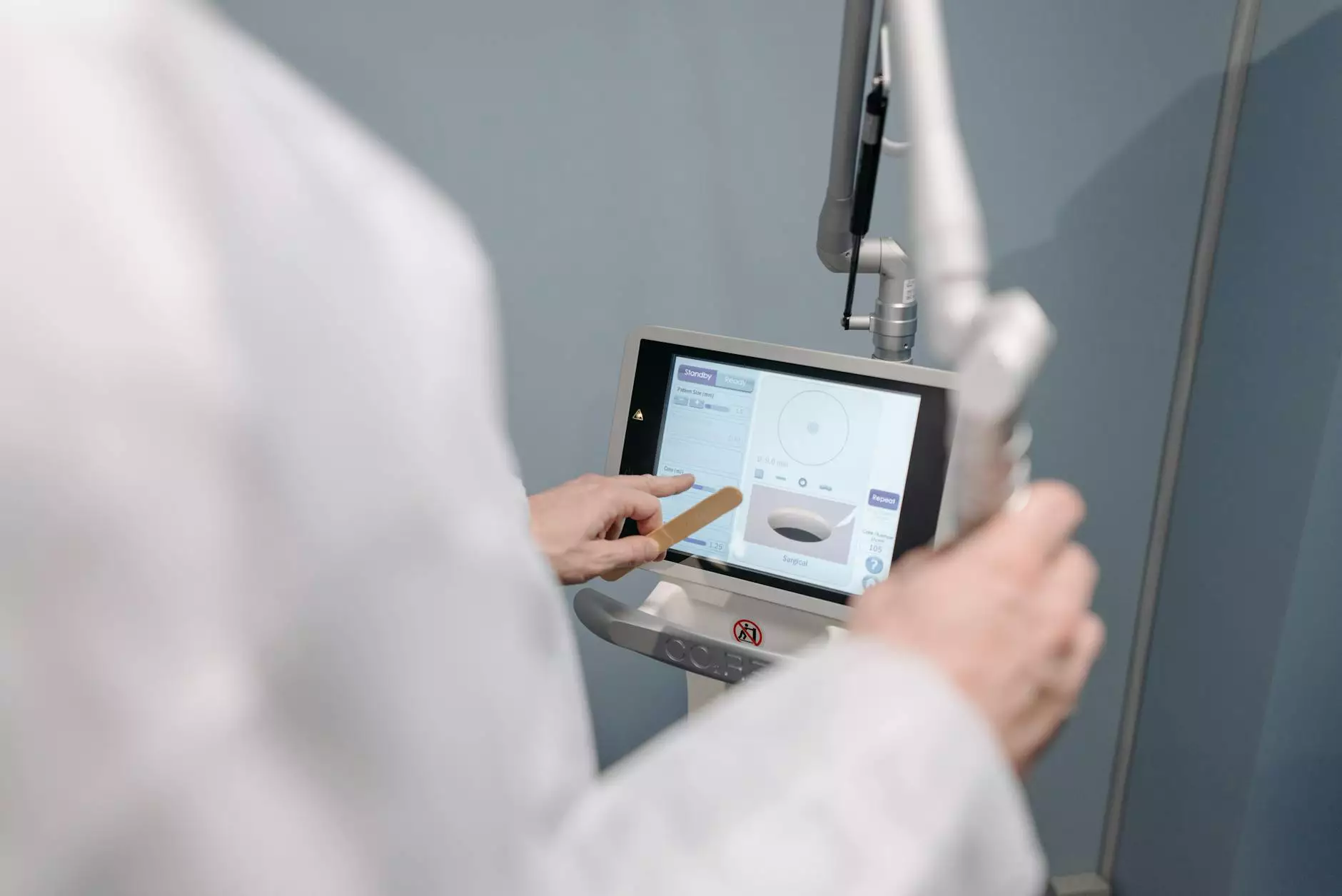Understanding Label Applicators: Enhancing Business Efficiency

In the modern business landscape, efficiency and precision are the keys to maintaining a competitive edge. One of the essential tools that can significantly impact these factors is the label applicator. Though they may seem like simple machines, label applicators are crucial in various industries, particularly in printing services, electronics, and computers. This article aims to explore the mechanics, advantages, and future trends of label applicators, helping businesses understand their importance and how they can leverage them for optimal performance.
What Are Label Applicators?
At its core, a label applicator is a device designed to automate the application of labels to products. These machines can vary in complexity, capability, and application methods. Some label applicators are simple, hand-operated devices, while others are sophisticated, automatic machines. Regardless of their complexity, all label applicators serve to enhance productivity by ensuring that labeling processes are quick, reliable, and consistent.
The Importance of Label Applicators in Business
In sectors like printing services, electronics, and computers, every detail matters. Proper labeling not only adheres to regulatory requirements but also improves brand visibility and strengthens customer trust. Here are some reasons why implementing label applicators is paramount for any business:
- Increased Efficiency: Label applicators streamline the labeling process, which minimizes manual labor and speeds up operations.
- Consistency and Accuracy: With automated labeling, companies can ensure that labels are applied in a uniform manner, reducing errors associated with human application.
- Cost-Effectiveness: By reducing the time required for labeling, businesses can lower labor costs and improve product turnaround times.
- Regulatory Compliance: In industries like electronics and food services, adhering to labeling regulations is critical. Label applicators help ensure that all necessary information is present and accurate.
- Scalability: As businesses grow, the volume of products often increases. Automated label applicators can easily scale to meet higher production demands.
Types of Label Applicators
Understanding the various types of label applicators is essential for selecting the right one for your business needs. Here’s an overview of the most common types:
1. Manual Label Applicators
These are hand-operated devices that require human intervention to apply labels. They are typically used for small-scale operations or in settings where products come in various shapes and sizes, making automation challenging.
2. Semi-Automatic Label Applicators
Semi-automatic machines require some human involvement but can handle most of the labeling process independently. For instance, an operator might need to place the product on the machine, while the machine handles label application.
3. Fully Automatic Label Applicators
Fully automatic label applicators are ideal for high-volume production environments. These machines can integrate with production lines to apply labels without any operator intervention, ensuring maximum speed and efficiency.
4. Special Purpose Label Applicators
Some label applicators are designed for specific applications, such as applying labels to cylindrical objects (e.g., bottles) or irregularly shaped products. These specialized machines often come equipped with features that enhance their effectiveness for particular tasks.
Key Features to Consider When Choosing Label Applicators
Selecting the right label applicator requires careful consideration of several factors. Here are the crucial features that businesses should evaluate:
- Label Type: Consider the materials and finishes of the labels you will be using. Different applicators are better suited to different label types.
- Speed: Evaluate how quickly the machine can apply labels. For high-volume operations, speed can be a critical factor.
- Precision: The ability to apply labels consistently and accurately, especially on irregular surfaces, is essential.
- Ease of Use: User-friendly machines can help minimize training time and reduce the likelihood of errors.
- Integration: Ensure that the applicator can easily integrate into your existing production workflow or machinery.
Implementing Label Applicators in Your Business
Once you've assessed the types of label applicators suitable for your operations, the next step is implementation. Here’s a guide to effectively integrating label applicators into your business:
1. Assess Your Current Processes
Begin by examining your existing labeling processes. Look for pain points such as bottlenecks or high error rates that could be alleviated by an applicator.
2. Define Your Objectives
Clearly define what you aim to achieve through the implementation of a label applicator. This could be reducing labor costs, speeding up production, or minimizing labeling errors.
3. Choose the Right Machine
Based on your assessment and objectives, select a label applicator that fits your needs. Consider factors such as speed, accuracy, and the types of labels you use.
4. Train Your Staff
Provide comprehensive training for your employees on how to use the new labeling machine. Proper training ensures that the benefits of the new technology are fully realized.
5. Monitor and Adjust
After implementation, continuously monitor the performance of your label applicator. Be open to making adjustments in workflows or processes to maximize efficiency.
The Future of Label Applicators
The landscape for label applicators is evolving rapidly, driven by advancements in technology and changing market demands. Here are some trends to watch:
1. Smart Labeling Technology
As IoT (Internet of Things) technology advances, label applicators are becoming smarter and more connected. Devices that can track inventory or react to production changes in real-time are becoming more common.
2. Sustainability Initiatives
With a growing emphasis on sustainability, many companies are developing eco-friendly labeling materials and applicators designed to minimize waste.
3. Enhanced Customization
Businesses are increasingly seeking customized labeling solutions that cater to specific branding needs. Future label applicators may offer more versatility in label sizes, shapes, and formats.
Choosing Omega Brand for Your Label Applicator Needs
At Omega Brand, we are committed to delivering the highest quality labeling solutions tailored to your business requirements. Our extensive range of products in printing services, electronics, and computers ensures that you find the right solutions for your business needs.
Partner with us, and experience the difference that precision and efficiency can bring to your labeling processes. Whether you are looking for manual, semi-automatic, or fully automatic label applicators, we offer top-tier options that can enhance your operations and support your business growth.
Conclusion
A well-chosen label applicator can revolutionize your business operations. By improving efficiency, ensuring accuracy, and saving costs, label applicators are an investment that pays off in numerous ways. As we move forward, staying abreast of advancements in labeling technology will be essential for any business aspiring to maintain a competitive edge. Remember, at Omega Brand, we are dedicated to providing you with the solutions that propel your business to success.









